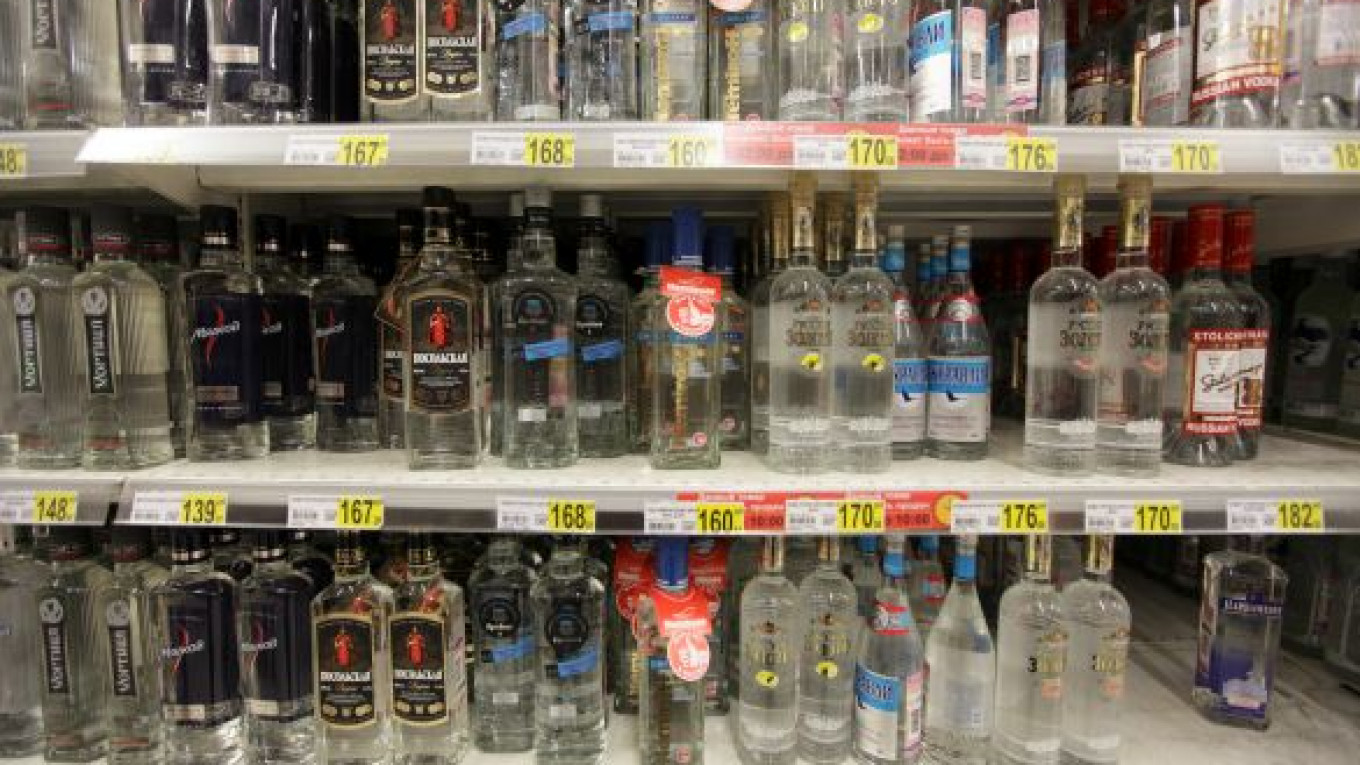Lawmakers in Moscow have expressed alarm at Customs Union rules that could lift a Russia-wide ban on reusing bottles for vodka and other drinks.
In the latest in an increasingly acrimonious deadlock between Russia, Kazakhstan and Belarus over alcohol regulation, Alexander Torshin, first deputy speaker of the Federation Council, told Interfax on Friday that lifting the ban would mean a surge in contraband booze and threats to consumer safety.
"Used bottles are a key element in the production of illegal vodka and other drinks, where a bottle bought for a ruble brings tens of rubles of income in counterfeit alcohol," he said. The senator said he had written to First Deputy Prime Minister Igor Shuvalov outlining his concerns.
Reusing old bottles allows producers of illicit spirits to undercut legitimate brands of expensive spirits. The practice is legal for beer and other low-alcohol drinks.
Meanwhile, a dispute that will sound comically familiar to any citizen of the European Union is swirling around Kazakhstan's demand to delete the term "wine drinks" — which refers to drinks where wine is diluted or mixed with additives — from draft regulations covering alcohol safety.
Kazakhstan argues that the term is misleading to consumers and breaks WTO rules. Critics in Belarus and Russia say the Kazakh proposals would make traditional favorites like mulled wine and sangria illegal.
Leonid Popovich, president of the Russian Union of Wine Growers and Winemakers, told the RBK daily on Friday that semi-sweet wines that account for about 80 percent of Russian production could also be affected because they will be reclassified as "wine drinks" under a new federal law on alcohol regulation that comes into force in July.
That, he warned, would mean the loss of 50 percent of Russia's vineyards that are only capable of producing semi-sweet wines.
Nor have the sides been able to find a compromise over safety regulations that would ban plastic bottles for alcohol, which the Russian brewing industry maintains are perfectly suitable for its products.
As further proof of the turbulence in the industry, a 20 percent tax hike on beer introduced from Jan. 1 is believed to have sparked a pre-New Year buying spree by distributors.
Carlsberg, the world's fourth-largest brewer and the dominant player in the Russian market through its control of Baltika Breweries, traded up in Copenhagen on Friday, on the back of speculation about an Eastern European sales spike, Bloomberg reported Friday.
Russian light-beer production rose 17.6 percent last month, according to the State Statistics Service.
That marks a recovery from a poor third quarter of 2011 as the disappointing summer weather held back sales.
Carlsberg said in October that it saw its Eastern European unit's beer sales fall 9 percent compared with the same period in 2010.
SABMiller, which sells Miller, Grolsch, Pilsner and Kozel, said it saw its sales fall 6 percent in October to December, the AlcoNews web portal reported Friday.
A Message from The Moscow Times:
Dear readers,
We are facing unprecedented challenges. Russia's Prosecutor General's Office has designated The Moscow Times as an "undesirable" organization, criminalizing our work and putting our staff at risk of prosecution. This follows our earlier unjust labeling as a "foreign agent."
These actions are direct attempts to silence independent journalism in Russia. The authorities claim our work "discredits the decisions of the Russian leadership." We see things differently: we strive to provide accurate, unbiased reporting on Russia.
We, the journalists of The Moscow Times, refuse to be silenced. But to continue our work, we need your help.
Your support, no matter how small, makes a world of difference. If you can, please support us monthly starting from just $2. It's quick to set up, and every contribution makes a significant impact.
By supporting The Moscow Times, you're defending open, independent journalism in the face of repression. Thank you for standing with us.
Remind me later.






